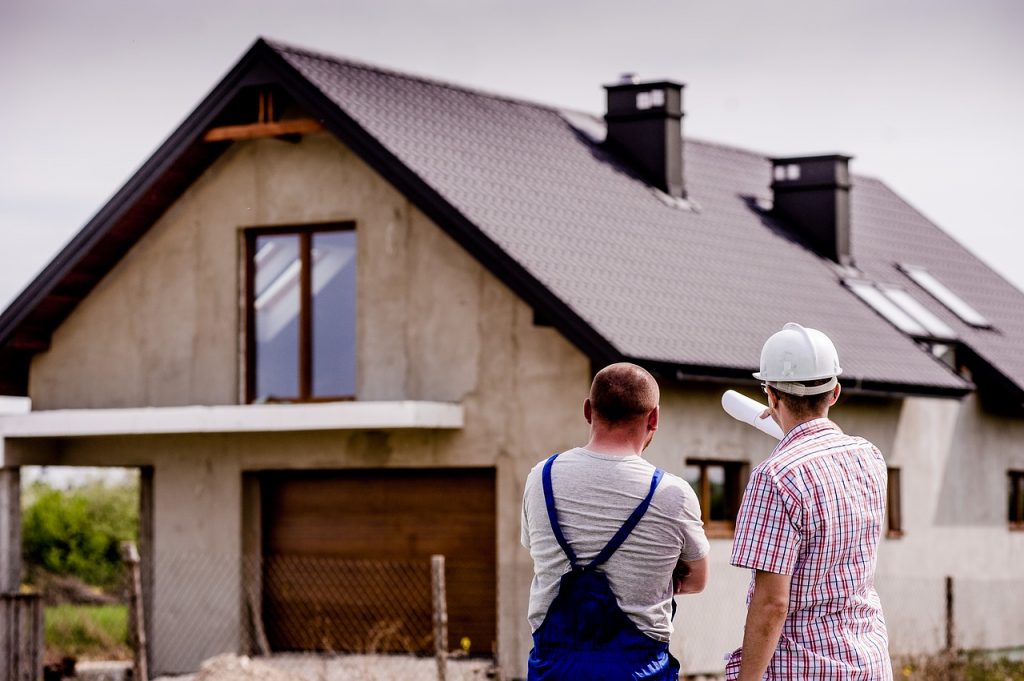Based on the daily monitoring of legislation, the Better Regulation Center have selected 10 most important changes with potential of bringing entrepreneurs savings in 2019.
1. No submission of disclosures of criminal records even more

Starting with 2019, the duty of submitting disclosures of criminal records to public authorities for proving one’s impeccability is cancelled. This change is based on a general clause in E-Government Act, under which it would be unnecessary to prove some facts to the public authorities, if such authorities would have been able to check those facts through information systems of public administration or if they are aware of the facts from their activities.
2. Reduction of VAT rate for accommodation services from 20 % to 10 %

The reduction of VAT rate to 10% for every type of accommodation service is particularly aimed at the supposed increase of the demand for accommodation services in the territory of Slovakia and the associated development of tourism.
Accommodation services include:
a) hotels and similar accommodation services,
b) hiking and other short-term accommodation services,
c) operation of recreational and holiday camps
d) other accommodation services (accommodation services in halls of residence, services in the rooms or accommodation units in hostels for workers, and others).
3. Increasing motivation of small employers to enter the dual education system

In order to make the dual education more attractive, a contribution for employers to compensate a part of their costs for implementation of the dual education shall be implemented in the sum of EUR 300 or 700 per student for large enterprises and up to EUR 1,000 per student for small and medium-sized enterprises for each student with the learning contract concluded in the year when practical education started to be provided.
As for the employers, the administrative burden has been significantly reduced by removing deadlines for submitting applications for verification of competence, replacing the documents to be submitted by statutory declarations as well as removing the duty of passing another verification of competence due to the increased number of students in the system of dual education.
At the same time, the share of practical education performed at another employer has increased; SMEs, which have no own capacities for meeting material, technical, spatial, and personnel requirements for performing practical education, will benefit from this in particular. Model education plans and curricula are deleted from the act and replaced by school education programmes to be elaborated in cooperation between secondary vocational schools and employers.
4. Cancelling the duty of paying security for VAT

It is not only that the duty of entrepreneurs to pay security for the tax has been cancelled but all the decisions regarding payments of securities for the tax issued before 31 December 2018, at which 12 months from the day of paying such security had not yet expired have been cancelled as well. The tax office shall pay financial securities, or their parts paid in cash back to the entities no later than by 28 February 2019 unless such security was used to compensate tax arrears or such arrears exist.
5. Lower tax rate on fuels

With the effective date until the end of 2019, the basic tax rate on fuels will be reduced as follows: petrol from the original sum of € 554/1,000 litres to the sum of € 547/1,000 litres and diesel from the original sum of € 394/1,000 litres to € 393/1,000 litres; then the value will be increased back to the value circa of the end of 2018.
6. One step ahead in computerization and debureaucratization of the Land Registry

There was a service of change monitoring started within the portal of the Land Registry, which informs the users automatically on every change to the monitored real estate occurred in the Land Registry. For example, the portal will notify you of changes to the seal identification, to entries and records performed, and to the notes recorded. A new output is available too – the list of real estates created to provide the owners or other persons entitled upon their rights to the real estates an overview of all real estates owned or managed by the given person.
7. Less complicated process of employing foreigners from third countries

Employing persons from third countries (i.e. from countries beyond EU, Iceland, Norway, Lichtenstein, and Switzerland) on the Slovak labour market will be facilitated in the form of temporary assignments through employment agencies under the condition that they run their business at least three years.
Employers will only be allowed to use this option for the events of temporary assignments for jobs listed in the list of jobs suffering from the lack of labour force in the districts with the registered unemployment rate lower than 5%.
The list of jobs suffering from the lack of labour force in such districts shall be updated on the website of the Central Office of Labour, Social Affairs and Family of the SR not only once a year as before, but once every quarter. The employees assigned from among foreigners from third countries will be included in the total number of employees that can be employed using the so-called fast-tracked procedure for labour shortage (not more than 30% of the total number of employees).
At the same time, the course of proceedings regarding residence of foreigners from third countries will be simplified, e.g. in the form of shortening deadlines for the assessment of applications for granting temporary residences for employment purposes from 90 to 30 days for labour shortage jobs or for employees of technological centres.
8. No duplicate payments of VAT ever more

The existing duplicate payments of VAT in some situations pointed out also by the podnikajte.sk portal using the absurd example of tea bought to the office have been cancelled. This applies to some exactly defined goods in retail stores such as agricultural crop and products made of iron and steel, when their buyers had to pay VAT twice.
9. Better conditions in the taxi service business

Changes to the taxi service business from 1 April 2019 respond to unequal conditions for the so-called licensed taxi drivers and drivers providing services for clients through mobile applications. Conditions for conventional taxi drivers have thus been simplified, but, at the same time, the adherence thereto will be monitored in a stricter manner.
Taxi service operators still need licences (they can get one for ten years after documenting their impeccability) and their cars shall be marked as taxi service to be controllable.
However, professional competence, financial reliability, as well as additional insurance are not required anymore. Neither the age of the driver (originally 21 years, now the driving licence is enough) nor the age of the vehicle shall be determined anymore; the vehicle can be either owned by the driver or the driver can have documented the right for its use. Taximeters will not be mandatory in taxis, if the transport price is agreed in advance.
10. Making the operation of massage and wellness centres or sports facilities less complicated

Starting with February 2019, regulation of entrepreneurs operating human body care facilities (such as massage saloons, wellness, and so on) or physical education and sports facilities has been reduced and administrative burden processes have been simplified.
As for the first type, the human body care facilities, requirements regarding lighting systems, compartments for clients’ shoes, location of showers in saunas, and minimum frequency of basic repairs of all paints and painting in human body care facilities have been reduced. The requirement of providing showers in massage saloons and floor space for employees and waiting rooms in saunas has been cancelled as a whole.
As for the second type, the physical education and sports facilities, the requirements for lighting systems have been reduced as well and the requirement of providing a sufficient number of rooms with washbasins for cleaners and of using ceramic walls in shower rooms and toilets only has been cancelled as a whole.
